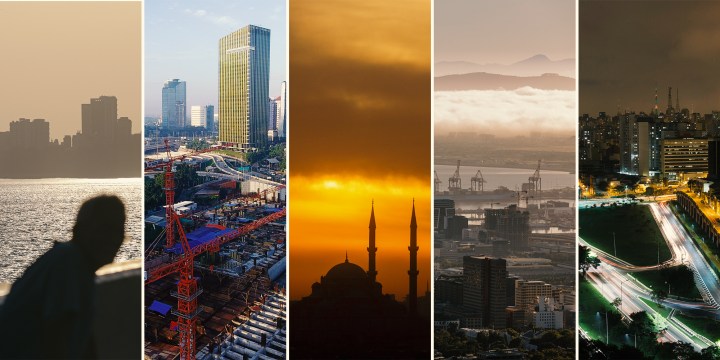BUSINESS REFLECTION
After the Bell: The Fragile Five are fragile no more

Even as someone who believes in the utility of markets, I still relish the occasions when markets get things wrong.
Markets are useful, as any economist will tell you, because they reveal prices as opposed to a theoretical notion of what the price should be; in so doing, they balance supply and demand. They are, at their best, self-regulating and automatic, and allow buyers and sellers to bond in a kind of tacit mutual agreement. They are amazing — a tribute to the ingenuity of the industrial world and its underpinning of prosperity. It’s no accident that this discovery of markets’ utility coincided with the Enlightenment. And delightfully, markets can also be wrong.
The reason markets can be and often are wrong allows for several social benefits. First, it gives economists endless hours of fun debating why things didn’t turn out as they should have. Second, it gives university economics lecturers plenty of space to conjure up theories about why markets respond inappropriately.
Of course, being wrong also has its downsides. Either buyers or sellers are going to get burnt, which is never pleasant. That markets are sometimes wrong gives a certain kind of politician licence to say markets are generally wrong, which is always dangerous. But markets are generally not wrong and are most often shockingly right.
I was reminded by an article on Bloomberg of a notion that was circulating in the bond markets a decade ago, which was given the moniker “the Fragile Five”. Turns out, the Fragile Five were not fragile at all — at least not all of them. The term was coined by a banker, natch, from Morgan Stanley to describe five countries that seemed vulnerable to bond market pressure.
The five countries were India, Indonesia, Turkey, South Africa and Brazil. I suspect ordinary people don’t realise how ominous this kind of description can be, partly because the global bond market is so poorly understood. It’s poorly understood because it largely happens in such large denominations and in a very distant kind of way.
Of course, it’s crucial because a) it is so huge, and b) it determines how much and at what rate governments can borrow money, among other things. That is an activity which governments have been using over the past decade like kids in a candy store. Anyone who isn’t a little bit frightened by governments with seemingly no end to their desire to borrow has not been concentrating.
The most common way of expressing this concern is to follow the cost of insurance taken out by lenders to cover the possibility that governments or private entities will fail to pay back a bond, which is essentially just a sophisticated IOU. That is called a credit default swap (CDS), an instrument we got to know rather well during the 2008 financial crisis because it’s also possible for the issuer of the insurance to default, and then you have a Big Problem. It’s called a “swap” because it allows an investor to swap its credit risk with another investor.
In the interim, credit default swaps tell you very graphically how the market views country risk because they are very sensitive and volatile. In any event, over the past decade, the CDSes of two of the Fragile Five countries, India and Indonesia, have turned around dramatically.
Both countries responded aggressively to their categorisation as members of the group. They reformed their financial systems and developed the habit of economic growth under reformist prime ministers Narendra Modi (India) and Joko Widodo (Indonesia). Both are up for election this year and in both cases their victories are widely anticipated and unlikely to cause financial ruffles.
The value of the CDSes of both countries is now a fraction of what it was a decade ago. India’s five-year credit default swaps have dropped by about 85% from their 2013 peak, while similar maturity CDSes on Indonesia’s debt have fallen by 70% in the same period.
Oddly, it turns out that the country where the worry was most appropriate was Turkey, whose president, Recep Tayyip Erdoğan, went in exactly the opposite direction, forcing interest rates lower more or less by decree and trying to manipulate the currency. This policy was eventually abandoned, but Turkish CDSes still bear the stigma. They are now higher than they were a decade ago, although they have come down substantially since Turkey reacquired continental economics.
Brazil and SA fill out the middle slot and are just a little bit better than they were 10 years ago, although Brazil’s CDSes rose very high for a time.
Yet, all in all, this evolution does reflect something of a changing world. I don’t think anyone would dare use a classification like that in the near future, particularly in reference to India and Indonesia. The world has swung on its axis, as it does, and big Asia is fragile no more. DM



















Thanks for an educational article about economy for an illiterate like me. Now we can understand more
Modi, reformist? Then meet putin, peacemaker.